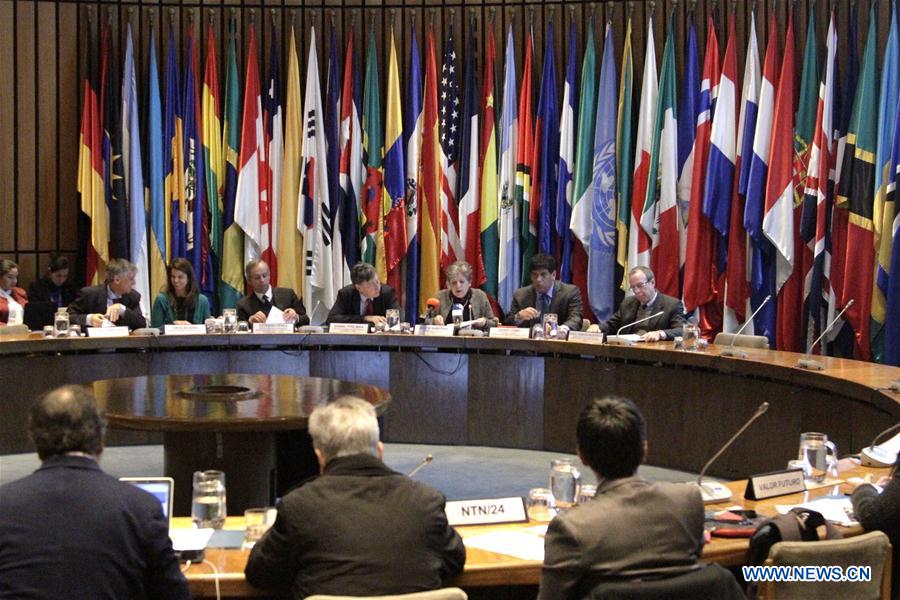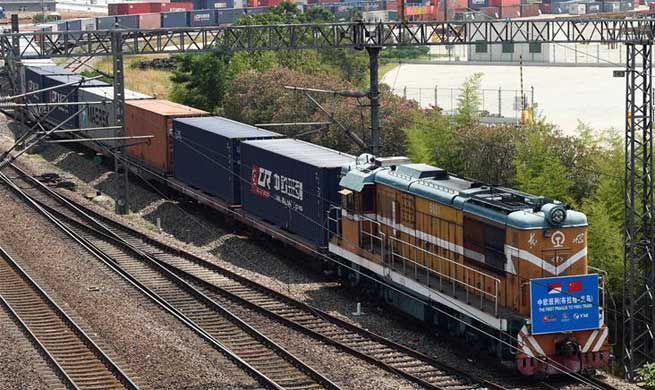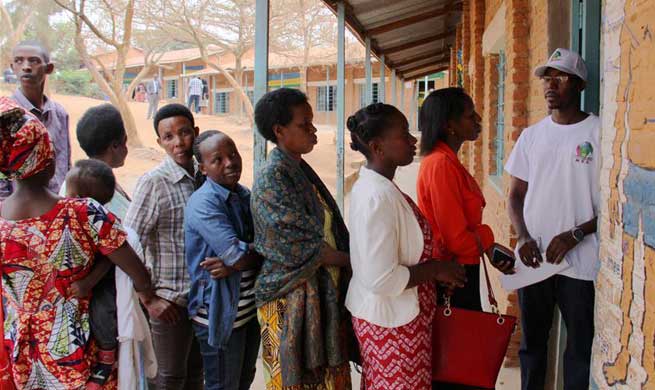
Photo taken on Aug. 3, 2017 shows the press conference presenting the annual report titled "Economic Survey of Latin America and the Caribbean 2017" in Santiago, Chile. Latin America should see low but positive economic expansion in 2017, following two years of negative growth, the United Nations Economic Commission for Latin America and the Caribbean (ECLAC) said Thursday. (Xinhua/Wang Pei)
SANTIAGO, Aug. 3 (Xinhua) -- Latin America should see low but positive economic expansion in 2017, following two years of negative growth, the United Nations Economic Commission for Latin America and the Caribbean (ECLAC) said Thursday.
The region "will grow 1.1 percent on average in 2017 after two consecutive years of contraction," the UN agency forecast.
ECLAC based its positive forecast on "an international context that shows improved growth expectations despite geopolitical risks, and better prices for the commodities that the region exports."
Presenting the annual report titled "Economic Survey of Latin America and the Caribbean 2017" here at a press conference, ECLAC said factors driving growth in the region include moderate recovery of the global economy, a slight rebound in the volume of international trade, and increased price levels for basic products.
Improvement in investment and greater dynamism in private consumption were also mentioned in the report.
The report breaks down growth by region, forecasting gross domestic product (GDP) in South America to grow 0.6 percent this year; in Central America and Mexico, 2.5 percent on average, thanks to an increase in remittances and improved growth expectations for the United States, Mexico's main trading partner; and in the English- and Dutch-speaking Caribbean, a 1.2 percent growth, following a -0.8 percent contraction in 2016.
All countries in the region will see positive growth, except troubled Venezuela, where the GDP "is seen falling -7.2 percent," and Saint Lucia and Suriname, two countries in the Caribbean.
ECLAC also urged countries to pursue "macroeconomic policies to invigorate long-term growth" and bring about "necessary structural change in the region's economies."
Those policies should include "countercyclical frameworks for fiscal policy that defend and promote public and private investment," as well as credit stabilization, and "monetary policy to support investment growth" that goes beyond instruments such as interest rates, ECLAC Executive Secretary Alicia Barcena said.
Despite the rebound in economic growth during the first quarter of 2017, the employment picture looks bleak.
The report forecasts "The rate of urban unemployment is forecast to rise from 8.9 percent in 2016 to 9.4 percent in 2017," putting "the cumulative increase in the urban unemployment rate at 2.5 percentage points between 2014 and 2017," the report said.

















